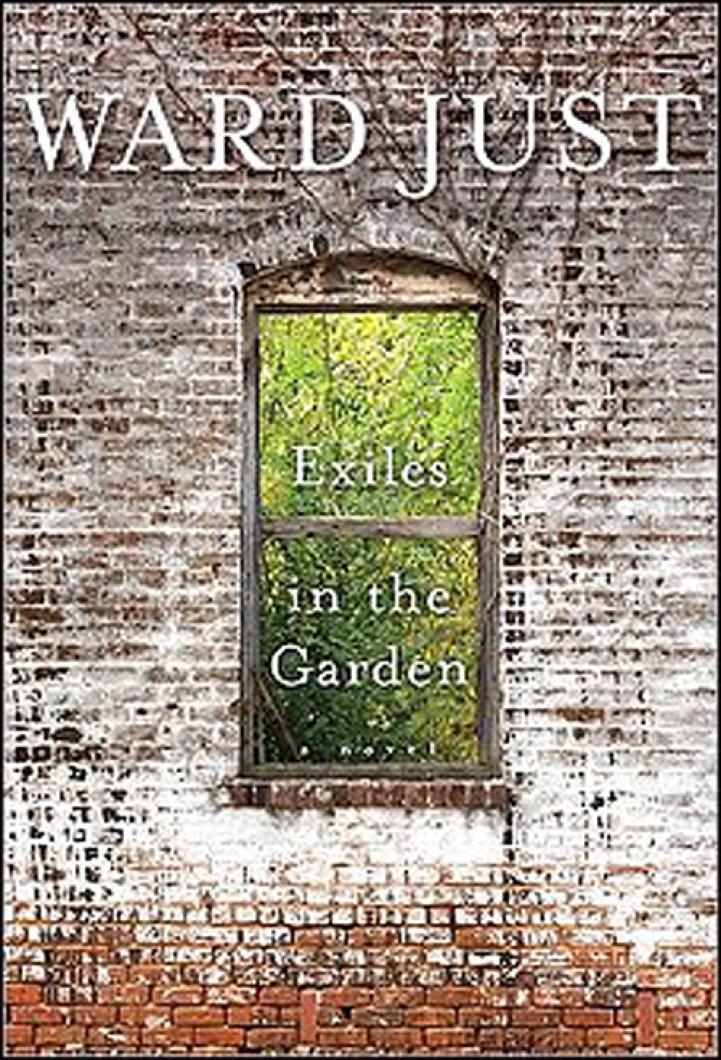EXILES IN THE GARDEN. By Ward Just. Houghton Mifflin Harcourt. July, 2009. 288 pages. $25.
Anyone who has spent time in London, Paris, Tokyo or any other major capital inevitably is dissatisfied in Washington, D.C.
Chosen by compromise, built atop a swamp, and provincial to its core, it offers some of the nation’s most appalling architecture (e.g., the John F. Kennedy Center for the Performing Arts, or the J. Edgar Hoover FBI Building) and weather to match.
Worse, it often appears a tawdry carnival of pompous politicians, bumbling bureaucrats and the sharp-elbowed strivers who curry their favor — diplomats, lobbyists, generals and journalists. They are the city’s elite, and thus its entertainment. Restaurants post their photos, pundits debate their wisdom, headlines mark their scandals. Every few years, the face cards are reshuffled, the ins become outs, and power shifts. But the one-ring show never changes. Ye shall know them by their laminated ID cards.
The backwash of official Washington from the 1960s to the current day forms the bleak backdrop for Ward Just’s latest novel, Exiles in the Garden. After 15 novels, two nonfiction books and a play, Mr. Just knows how to set a talismanic scene and why. He uses it here to tell a sad but convincing story about loss — lost opportunity, lost power, and especially lost love.
At the center is Alec Malone, the only son of a powerful Democratic Senator who has seen his influence steadily slip away. Given to dreamy reveries, young Alec disappoints his father by eschewing a political career to become a newspaper photographer. But Alec is no rebel. He prefers quiet landscapes to action, artful snaps of cemeteries and sailboats to the rough and tumble of life. He disappoints his editors by refusing to cover the combat in Viet Nam. “Photography doesn’t belong in a war,” he explains. Pictures are “not trustworthy.”
Nor, it seems, is his Swiss-born wife Lucia. They met on one of his local story assignments, and to his parents’ dismay (they had hoped to invite the President to the wedding), quickly eloped and bought a small house in Georgetown. The seduction is brief, the betrayal certain. Bored by Alec’s behind-the-lens detachment, Lucia turns for stimulation to their neighbors, a wealthy Austrian couple who exude Old World charm.
Each afternoon, the Austrians host a salon in their garden for a passing parade of Cold War exiles, refugees and runaways. The émigrés are “a conspiratorial lot, brooding and sly, volatile, great talkers, bone idle.” They mourn the past, fear the future, and blame Washington’s fixation on Vietnam for their plight as castaways of history. Americans are too vulgar, too young, to understand.
Alec rightfully dismisses this ragtag Greek chorus as “second tier intellectuals from second tier countries,” but no matter. Lucia finds passion with a disgruntled Hungarian Marxist, and runs away.
And then, suddenly, it is 40 years later. After the Sept. 11 attacks, after the invasion of Iraq, Washington is a garrison city, with barriers at every turn and snipers on the White House roof. In the Georgetown house where the Austrians lived, “idle aristocrats made way for foul-mouthed lawyers who made way for Republican oil men.” Alec has fallen for Annalise, a B-level actress whose father is a Republican member of Congress. And his father is dying.
Lucia unexpectedly reappears at the funeral. She discloses a surprise: her own father, whom she thought had been killed in World War II, is living at a rest home for political exiles in Washington. Fearful of what she might find, she begs Alec to come along. But Anton appears straight from central casting: he led anti-fascist partisans against the Nazis, was imprisoned by the Soviets for 20 years, and is everything timid Alec is not. Anton offers no excuse for not trying to contact Lucia until she is in her 60s, or for the wartime atrocities he casually admits. Sitting in his rocker, he is more interested in blowing smoke rings at squirrels than giving explanations.
Once again, no matter. Lucia regrets bringing Alec. “She didn’t need protection, and if she had needed it Alec was not the man for the job. She had been with her father only an hour and she felt as if she had known him her entire life.”
Mr. Just can write beautifully. But he doesn’t use a single quotation mark for his dialogue, which can be confusing. And he peppers his text with mystifying lists of long dead politicians and their aides, plus artists, writers, cities and more.
Some readers may remember Cordell Hull, Alben Barkley and Henry Wallace, not to mention “Humphrey. Dirksen. Udall. Acheson. Krock.” And “Muscle Shoals, Trygve Lie, Warren Magnuson, Clayton Fritchey.” They may recognize “a Caspar David Friedrich next to a Kandinsky, Max Liebermann beside Klee,” and know “Turgenev, Adorno, James Joyce, Walter Benjamin, and Robespierre.” Some even may be able to place “the Caucasus, the Carpathians, the Masurian Lakes, Galicia, the Andalusian plain.” One anticipates a quiz at the end.
Like Washington, the real action here often takes place between the lines. The story moves slowly and deliberately, like a well-crafted piece of legislation. It is carefully staged, like one of Alec’s careful still lifes. But it builds to a surprising climax. Like much of Alec’s life, it leaves a mystery in its wake.
Bob Drogin is a national correspondent for the Los Angeles Times and author of Curveball: Spies, Lies, and the Con Man Who Caused a War, which won the 2008 Cornelius Ryan Award for best nonfiction book on international affairs.







Comments
Comment policy »